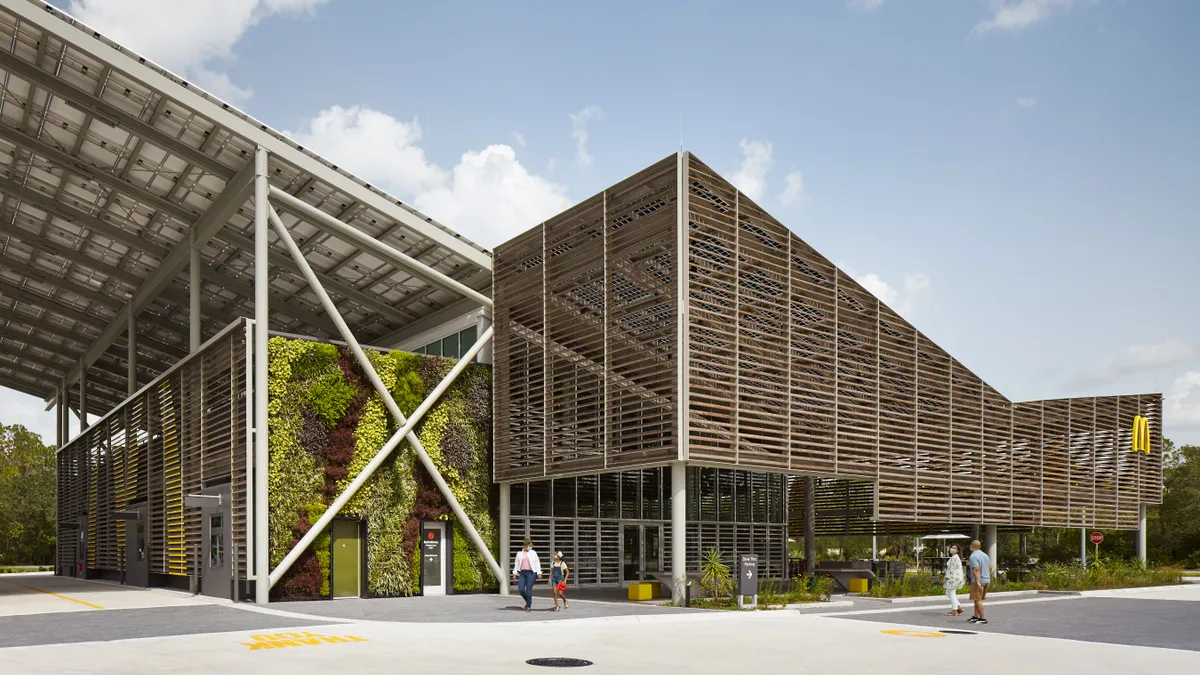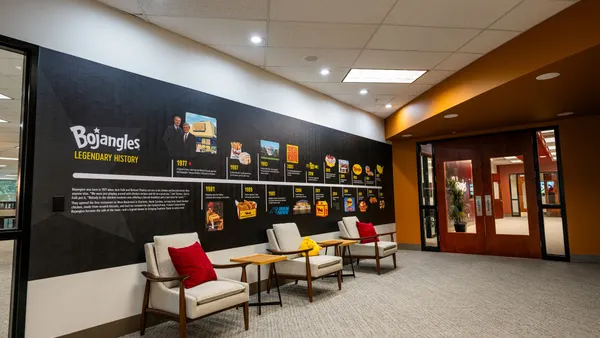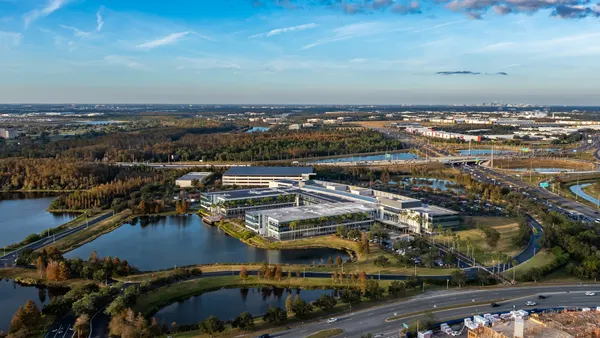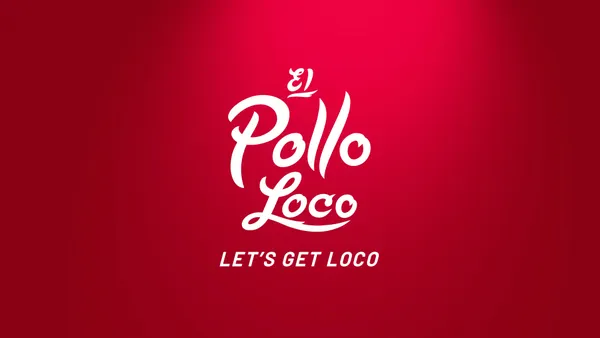Dive Brief:
- McDonald's will increase its sustainability commitments and try to reach net zero carbon emissions by 2050, the company announced Monday.
- The company has joined the United Nations-backed Race to Zero campaign, a voluntary global initiative to encourage companies and countries to reach net zero carbon emissions by 2050.
- McDonald's and other major chains have made similar pledges in the past amid increasing public and scientific pressure to prevent catastrophic global warming, or a global average temperature increase above 1.5 degrees Celsius.
Dive Insight:
Despite increasing sustainability efforts over the last several years, McDonald's, which has 39,000 locations around the world, suggests its latest pledge would require considerable transformation to enact systemwide decarbonization. It aims to work with its teams, from its supply chain to franchisees, to create locally tailored solutions targeting renewable energy, regenerative farming, circular economy and sustainable packaging.
Currently, McDonald's has achieved an 8.5% reduction in absolute greenhouse gas emissions of restaurants and offices and a 5.9% reduction in supply chain emissions since 2015, according to the press release.
"There is no issue more urgent globally and of impact locally than protecting our planet for generations to come," McDonald's CEO Chris Kempczinski said in a statement. "By committing to net zero through the SBTi's Business Ambition for 1.5°C campaign, we are helping every community we serve mitigate the impacts of climate change."
But challenges remain for McDonald's sustainability goals. Reuters reported that 80% of the company's emissions come from the production of beef, poultry and dairy, or supply chain operations. Still, the company has said in the past it takes measures to make beef production more sustainable, including working with producers focused on improving farming, grazing and conservation practices.
The company has put effort toward sustainability initiatives outside of animal agriculture as well. Two years ago, McDonald's debuted two stores in Canada to test sustainable packaging and utensils. The company also invested in renewable energy generation in 2019. In 2020, the company opened a store in Orlando, Florida, powered by 100% renewable energy.
Other major brands, including Starbucks, have also experimented with ambitious sustainability goals. This year, Starbucks plans to open a store in Shanghai without paper receipts and with reusable cups. The coffee giant also pledged in 2019 to power 3,000 restaurants with clean energy by 2021.














